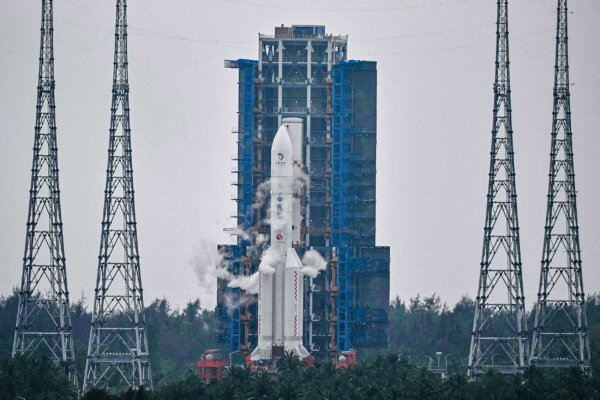
Commentary
Tensions between the United States and China are escalating in space, with Beijing significantly enhancing its military capabilities in what was once considered a non-military domain. The People’s Liberation Army (PLA) now poses a significant threat to American interests in space, boasting nearly 500 intelligence, surveillance, and reconnaissance (ISR) satellites, with many being dual-purpose commercial satellites. In contrast, the United States has approximately 300 dedicated military or intelligence satellites out of almost 7,000 total satellites, most of which are commercial.
The PLA’s increased capabilities allow them to detect, track, and utilize satellite data to target and potentially attack U.S. forces. This poses a significant risk to American soldiers, sailors, and airmen, as well as the U.S. economy, which heavily relies on satellite communications.
The PLA has demonstrated anti-satellite capabilities since 2007 and continues to develop ground-based and potentially submarine-based weapons, like lasers, to disable U.S. satellites. In a potential conflict over Taiwan, the PLA could launch a surprise attack on U.S. satellites to cripple American military communication, surveillance, and targeting capabilities.
The U.S. Space Command (USSPACECOM) and U.S. Space Force (USSF) play crucial roles in defending American interests in space. USSPACECOM coordinates joint military forces for space warfighting, while the USSF focuses on training, equipping, and operating space forces as needed.
To counter the growing threat in space, the USSF advocates for offensive space capabilities, known as “space fires,” that can disable adversary satellites without creating debris fields. Additionally, redundancy in U.S. military and intelligence satellites is crucial to ensure continuous operations even if some satellites are compromised.
Ensuring space superiority in a potential conflict with China or Russia is essential for deterrence and maintaining peace. This requires adequate funding and investment in space defense to protect American assets and prevent hostile actions.
While achieving peace through strength in space comes at a cost, it is necessary to safeguard national security interests and prevent potential conflicts in space.
Views expressed in this article are opinions of the author and do not necessarily reflect the views of The Epoch Times.





